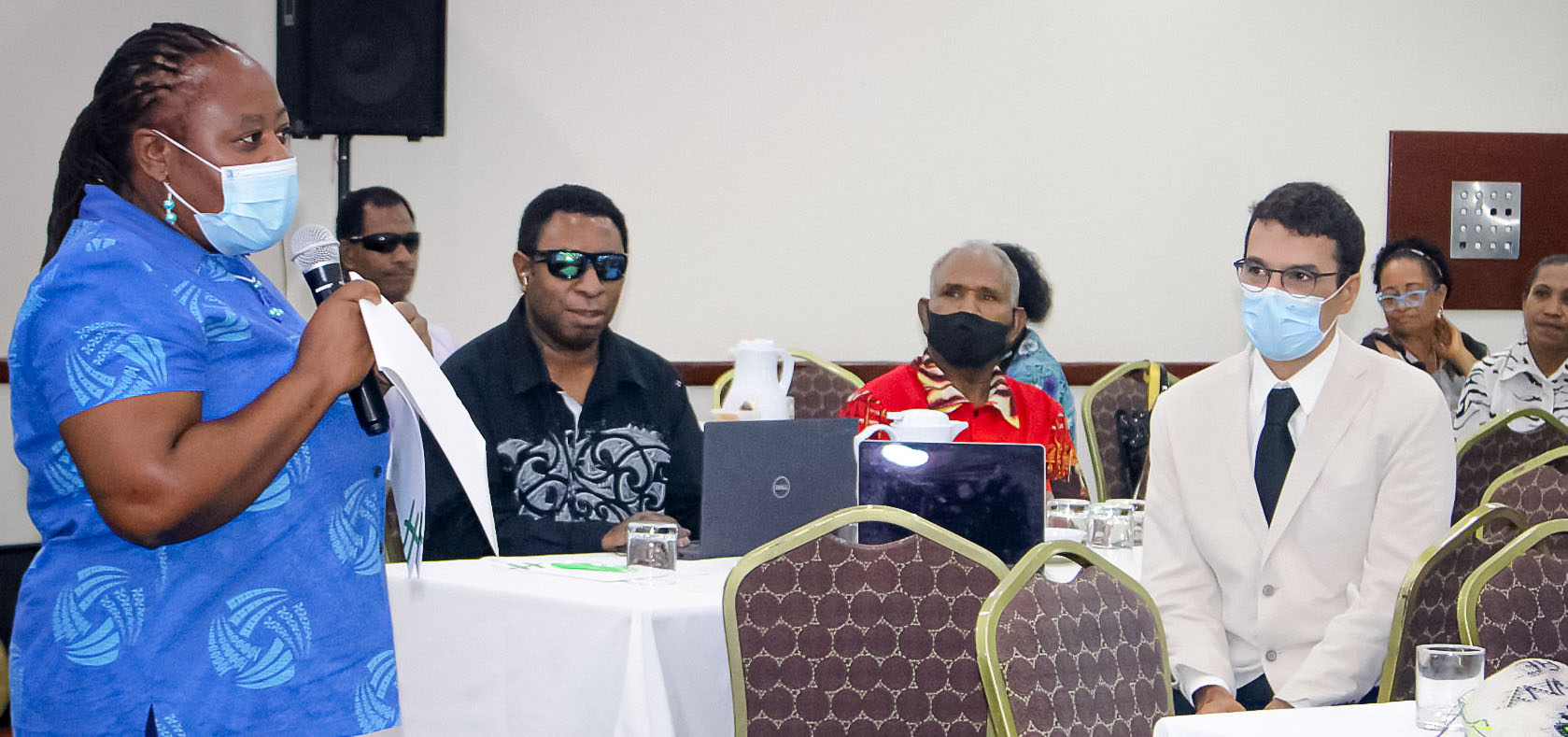UN Women helps people with disabilities advocate for disability-Inclusive policies in Papua New Guinea
Date:
Author: Aidah Nanyonjo

Port Moresby, Papua New Guinea — About 100 people with disabilities from all provinces of Papua New Guinea gathered in Port Moresby to review the National Disability Policy (2015-2025), and some of them talked about the problems they still faced in their daily lives.
The National Capital District Diff-Abilities Advocacy Agency, a non-government organization, organized the 27 June-1 July event with support and funding from UN Women and the Government of Australia.
The agency’s disability inclusion technical advisor, Kevin Akike, said the review of the disability policy was needed to address barriers to its effective implementation. He said that inadequacy of supporting infrastructure limit people with disabilities from accessing education, health care, employment and other essential services.
Kanaba Hasu, a 43-year-old woman with a disability, said at the gathering: “The policy should look at accessibility in all aspects, especially for women with disabilities. Access to health services, education, public transport, Information, and government offices.
“Sometimes, people in big offices do not want to attend to us. When it comes to public transport, we tend to race with able-bodied persons to get into the public buses, especially during rush hour. Everybody gets on the bus, and a woman with disability stays until late because she cannot hustle. This is risky for us.”
Women with disabilities handed over a position paper to UN Women’s Deputy Country Representative, Caroline Nyamayemombe.
The paper acknowledges the progress the Government has made in recognizing the rights of people with disabilities, but said, “Moving from recognition of rights to realization of rights requires development of effective legal and regulatory frameworks, greater mobilization of resources, strong national cooperation and steady leadership.”
Nyamayemombe advised people with disabilities to take advantage of platforms the Government has put in place for engagement.
“If you do not engage with those platforms, you lose out,” she said. “For us, we are simply your allies in the struggle for inclusivity. Our concern is that woman with disability who has to go through multiple levels of discrimination for her to live.”
She pledged UN Women’s continued support to advocate for their cause with the incoming Members of Parliament and provincial administrators.
The First Secretary of the Embassy of Australia, Gaye Moore, said: “It is important to have strong advocates in government and civil society working together to influence policy change. It is also important that the Government allocates funding for implementing these policies.
“Australia recognizes the principle of ‘Nothing for us without us.’ We all have a role to play to implement a rights-based approach to disability-inclusive development, so that people with disabilities can lead and participate in decisions that affect them.”
Under the principle of "Leave no-one behind", particularly for women and girls with disabilities, UN Women supports the Government of Papua New Guinea to find ways to enhance the civic participation of people with disabilities, implement the International Convention on the Rights of the Persons with Disability, and achieve the United Nations 2030 Agenda for Sustainable Development.
UN Women Protection Specialist Babak Askarian said that sustainable development requires that people with disabilities be included in the national development agenda.
“Barriers to inclusion put everyone with a disability at risk of poverty and exclusion and are destructive to the society and the national economy,” he said.